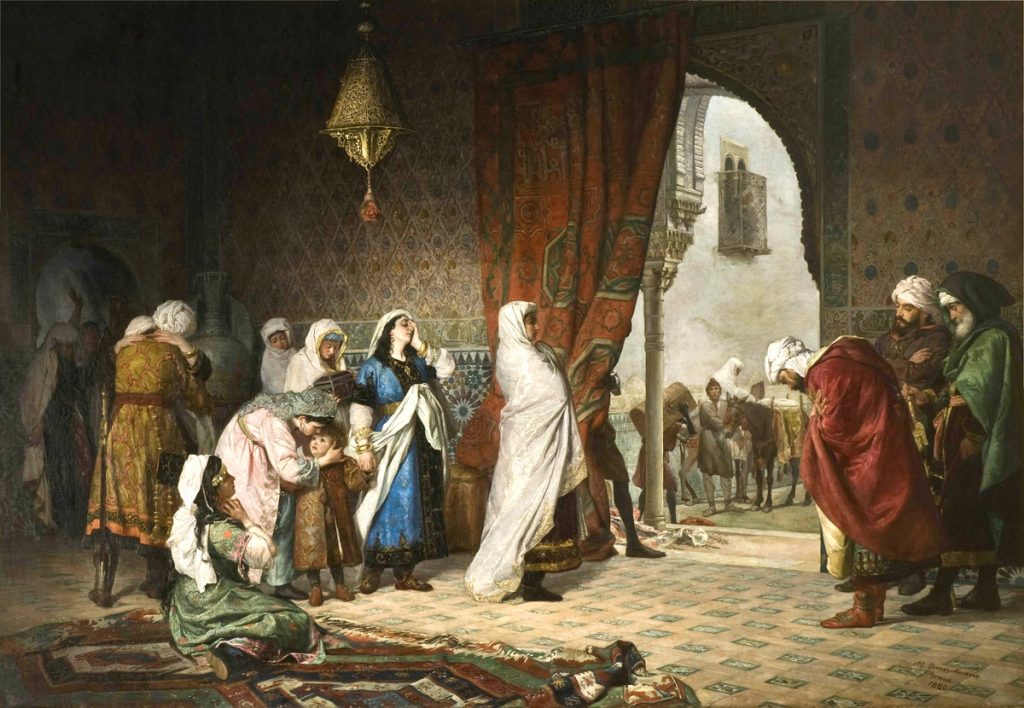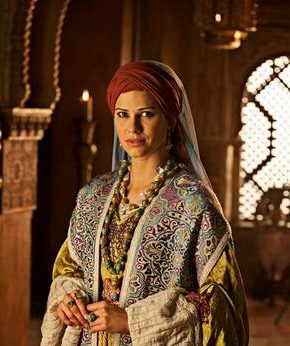… Spain, at the end of the 15th century, in the last chapters of the long Reconquest, a Christian noblewoman became a slave to the Moorish king of the Alhambra in Granada; She abjured her faith out of love and was accused of destroying the Nasrid Kingdom …
And that woman was Isabel de Solís, converted to Islam under the name Soraya.
The young woman, just over 17 years old, was the daughter of the mayor of Martos in Jaen, Sancho Jiménez de Solis. Isabel had lived a quiet life until then, together with her nurses and caregivers who educated and watched over her since she was orphaned as soon as she was born.
The beautiful Isabel de Solis had been promised in marriage to Pedro Venegas but that marriage could not be carried out because she was captured as a slave by the Nasrid people of Granada and taken to the Alhambra.
It was first sold in the Granada slave market and was bought by Sultana Aixa, the favorite wife of King Muley Hacen and mother of his son Boabdil.
But one day, while the Christian captive was washing shirts, Muley Hacen entered the laundry room and was captivated by her youth and beauty. He fell in love with her and bought her for his wife Aixa. She gave herself so much to the king that Isabel renounced her own Christian faith and converted to Islam. Then she was called Soraya, a name that means “Morning Star”.
… “la Romia” was the name used to describe a Christian woman who converted to Islam …
King Muley Hacen married her, leaving Aixa aside. But life in the Alhambra was not easy for Zoraida. With so many women for one man, the struggles to attract Muley Hacen’s attention were constant.
Little by little and by her influence on the king’s decisions, Zoraida began to play an increasingly important role in the kingdom. Aixa’s misgivings increased when she had two children: Nasr ben Ali and Saad ben Ali, whom she considered possible rivals of her son, the first-born Boabdil, in the succession to the throne.
Muley decided to expel Aixa from the Alhambra, who settled with Boabdil in a house in the Albaicin quarter. This decision triggered conflicts involving Muley Hacen, his brother Abdallah al Zagal and their son Boabdil.

But between fights and alliances and feeling old and sick, King Muley decides to abdicate the throne in his brother El Zagal, which is why, Boabdil, had rebelled against his father and together with his mother, fueled a civil war.
Given the difficult situation, in 1482 Zoraida went into exile with her husband and children and three years later, Muley Hacen died.
Zoraida, being a widow, made the decision to return to her original culture and asked for baptism, as did her children. The Church accepted that her previous abjuration had been forced by Muley but her future was not easy for her because freed slaves could not always regain their previous life, especially if they were no longer virgins. Honor was very important and the woman had to offer an excellent reputation. If not, another possible option was the convent…
Her children adopted the names of Juan de Granada and Fernando de Granada, but what happened to Isabel is unknown, just as it is not known where or in what year she died.



